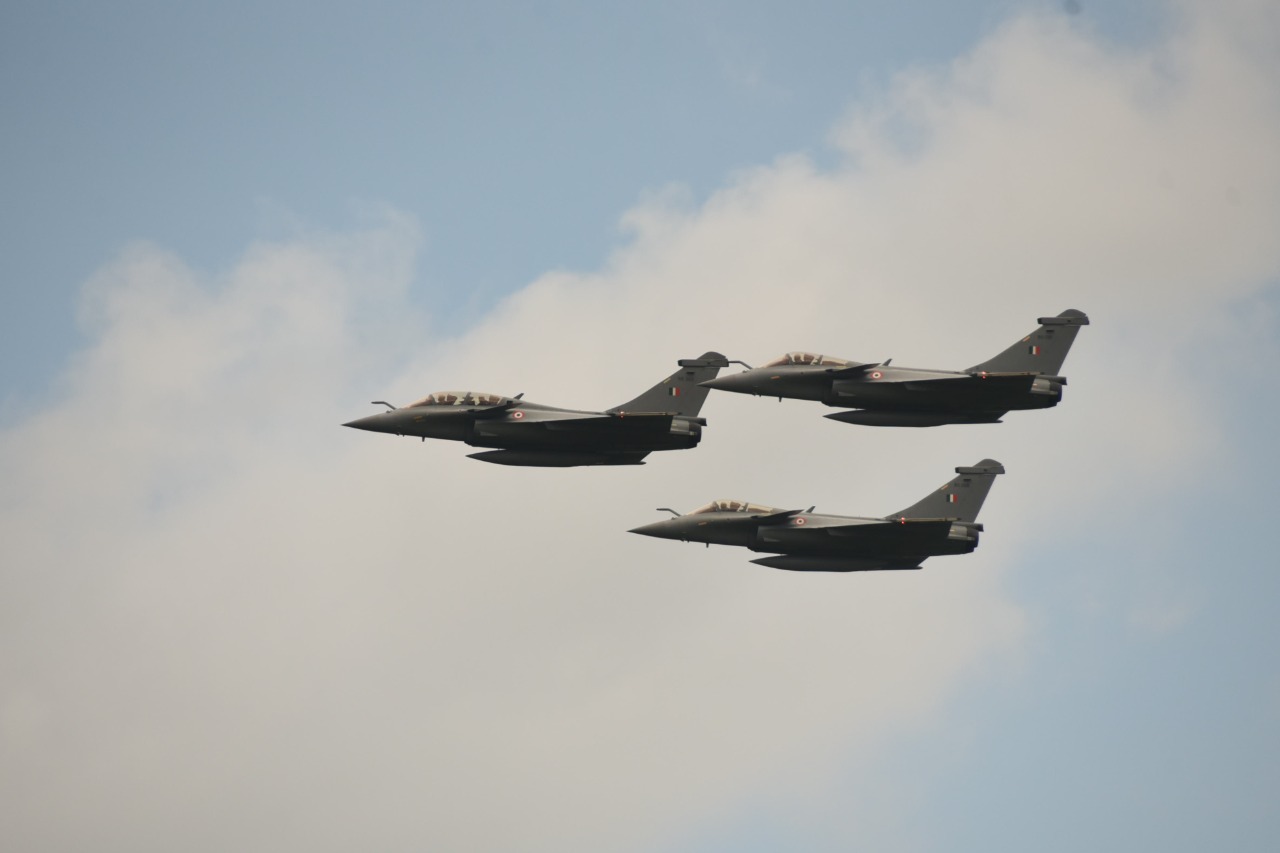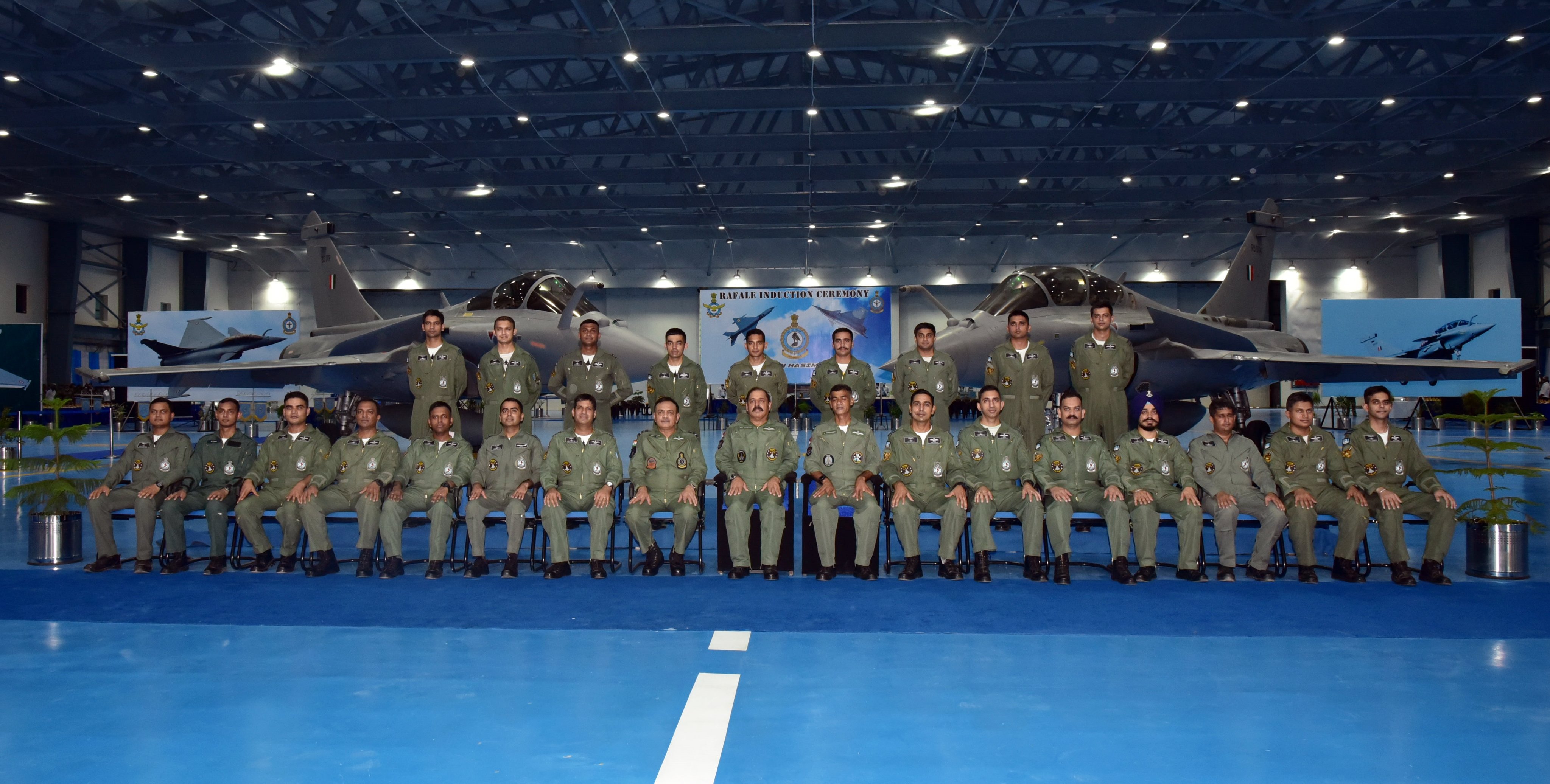The Indian Air Force’s second Rafale squadron becomes operational from eastern India’s Hasimara airbase, amid a protracted border standoff with China in Ladakh.
Dassault’s ‘Irresistible Offer’ To India: Will IAF Acquire 36 More Rafale Fighter Jets From France?
A top military analyst says that in war times, the French-made fighter jets may be deployed from different airbases, according to requirements.
IAF chief, Air Chief Marshal RKS Bhadauria, formally inducted Rafale aircraft into No. 101 Sqn at AFS Hasimara under Eastern Air Command (EAC) on July 28. The event included a flypast and a traditional water cannon salute, according to an IAF tweet.
Addressing the IAF officers at the airbase, the Chief of Air Staff said the “induction of Rafales was carefully planned at Hasimara, keeping in mind the importance of strengthening IAF’s capability in the eastern sector”.

According to Air Vice-Marshal Manmohan Bahadur (retired), India is expecting a timely delivery of the Rafale jets by the end of the year as France has been able to maintain the schedule that was revised due to the Covid-19 pandemic.
The 101 Squadron was originally formed on May 1, 1949, at Palam near Delhi, and has operated Harvard, Spitfire, Vampire, Su-7, and MiG-21M aircraft in the past.
The first squadron of Rafale aircraft has already been formed in Ambala and the aircraft have started patrolling the borders with China in eastern Ladakh and other areas, according to reports.
Manufactured by Dassault Aviation, the 4.5-generation Rafale jets cruise at almost double the speed of sound, with a maximum speed of 1.8 Mach. It is equipped with multi-role capabilities, including electronic warfare, air defense, ground support as well as in-depth strikes.

It can also be deployed in a nuclear deterrence role. Analysts say the jets are equipped with the longest-range air-to-air Meteor missile, Hammer air-to-ground smart munition, and long-range SCALP air-to-ground weapon.
“Recalling the glorious history of 101 Sqn, CAS (Bhadauria) said that he had no doubt that the Sqn would dominate whenever & wherever required & ensure that the adversary would always be intimidated by their sheer presence,” IAF tweeted.
Indian and France had signed an inter-governmental agreement in 2016 for the procurement of 36 Rafale jets at a cost of Rs 59,000 crore in the face of a depleting fleet of fighter jets. The IAF will phase out the aging Soviet-era MiG-21 fighters, many of which were lost in accidents over the years.
According to Hindustan Times, France will complete the delivery of 35 Rafale fighters by year-end and the last one will land in Hashimara in January 2022. India has so far received 26 fighters, of which two have been kept for IAF pilot and technician training in France.
‘No Delay In Rafale Delivery’
Air Vice-Marshal Manmohan Bahadur (Retired) told The EurAsian Times that India is expecting a timely delivery of the Rafale jets by the end of the year, as France has been able to maintain the schedule that was revised due to the Covid-19 pandemic.
Explaining the phasing out of the older aircraft such as the MiG-21s and the induction of the Rafale jets to ease the deficit of fighter aircraft of the IAF, the top defense expert said:
“There is always an induction and phasing-out program that the Air Force decides. The MiG-21s are being phased out and their replacements are balanced out between the Tejas coming in, the Rafale coming in, the extra contract for the MiG-29, and the order for extra Sukhois. It is not just Rafale, the replacements of the MiG will be evenly spread out.”
Air Chief Marshal RKS Bhadauria, CAS formally inducted Rafale aircraft into No. 101 Sqn at AFS Hasimara in Eastern Air Command (EAC) on 28 Jul. The event included a flypast and a traditional water cannon salute. pic.twitter.com/kdENCcwyR3
— Indian Air Force (@IAF_MCC) July 28, 2021
On India facing the threat of a two-front war with China and Pakistan, the IAF veteran said, “The IAF is placed well. Everybody is aware of the shortages. How do you plan? Certain things with tactics you undertake, all the planning process is there and I am sure the government and the Air Force leadership is fully on the ball on that. There is a threat and the threat has been analyzed. Measures are taken to meet those threats”.
On the second squadron of Rafale being located in the Hasimara air base in West Bengal, he said, “The Air Force has its own basing plan to meet the threats. Mirage 2000 is such a potent aircraft, but it is based way back in Gwalior. It is not Hasimara, which is important, or Ambala which is important… it is how we deploy them.
“So it does not mean that when the war comes, they will be deployed from Hasimara; they will be dispersed. Basing them in Hasimara, with one squadron there and another squadron in Ambala indicates that the potency of the Rafale will be used in both the sectors; will be utilized to their best advantage. Whether they fly off from Hasimara or from somewhere else we don’t know (yet).”
— With inputs from Kashish Tandon




